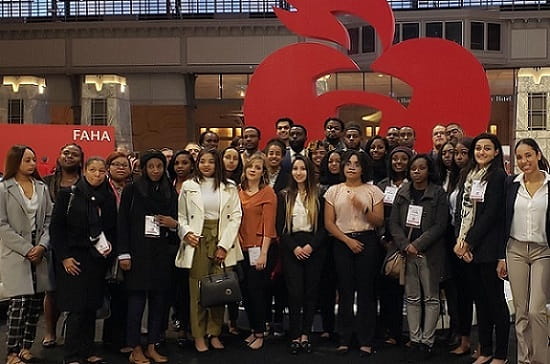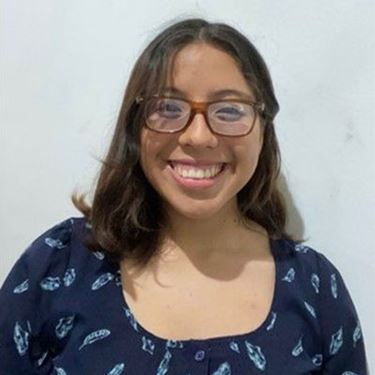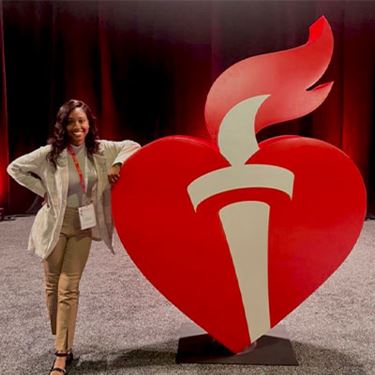About the SURE Program
 The SURE program supports individuals interested in Science, Technology, Engineering, Mathematics & Medicine (STEMM) fields or careers.
The SURE program supports individuals interested in Science, Technology, Engineering, Mathematics & Medicine (STEMM) fields or careers.
The American Heart Association collaborates with learning institutions to provide research experience and mentoring. Students within a laboratory will be assigned to a mentor who is connected to the AHA - whether as a member, grant recipient or advocate - to conduct research that fits within the AHA mission. The summer program lasts 8 to 10 weeks, from May or June to August. A virtual component allows students to participate in programs from other hosts.
At a minimum, SURE recipients:
- Must be interested in a health care-related field.
- Must display exemplary academic performance.
- Must be full-time undergraduate, rolling into their sophomore, junior or senior year.
- Must be able to dedicate 8-10 weeks between the end of May and August.
- Must present at a symposium at the end of the program.
- Must meet immigration requirements: At time of application, the student must be a United States citizen, or a foreign national holding a valid student, exchange or permanent resident visa, including an F-1, H1, H1B, J1, PR, TC or TN visa.
The institutions provide a suggested training plan that includes:
- Research experience
- Curriculum, including compliance training, responsible conduct of research and work-life concerns such as stress and time management.
- Other
AHA Benefits include:
- $6,000 stipend
- Travel expenses (primarily air travel)
- Stipend for housing (for non-local students) – (If institution provides it)
- Opportunity to attend AHA Scientific Sessions – All expenses paid
- Networking and other resources
Adrienne Meuller, PhD
“The Cardiovascular Summer Research Program at Stanford provides students from diverse backgrounds with foundational training in cardiovascular science to foster the next generation of researchers and physician-scientists.”
Danielle Young
SURE Scholar, Stanford University 22'
“The AHA Scientific Sessions was an enriching and inspiring experience that further solidified my passion for medicine and boosted my drive to become a physician. Being exposed to global leaders in healthcare that advocated the importance of health equity shed a lot of insight on the disparities in minoritized communities and emphasized that I am capable of making a change, even as a student. The open panel discussions granted me a safe space to ask questions to health care professionals that were once in my shoes and look like me.”
Jan. 1, Jan. 19, May 25, July 3,
Sept. 7, Nov. 26 & 27, Dec. 21-25
2026 Altum/ProposalCentral holidays:
Jan. 1, Jan. 19, Feb. 16, May 25, June 19, July 3
Sept. 7, Oct. 12, Nov. 26 & 27, Dec. 28-Jan 1

